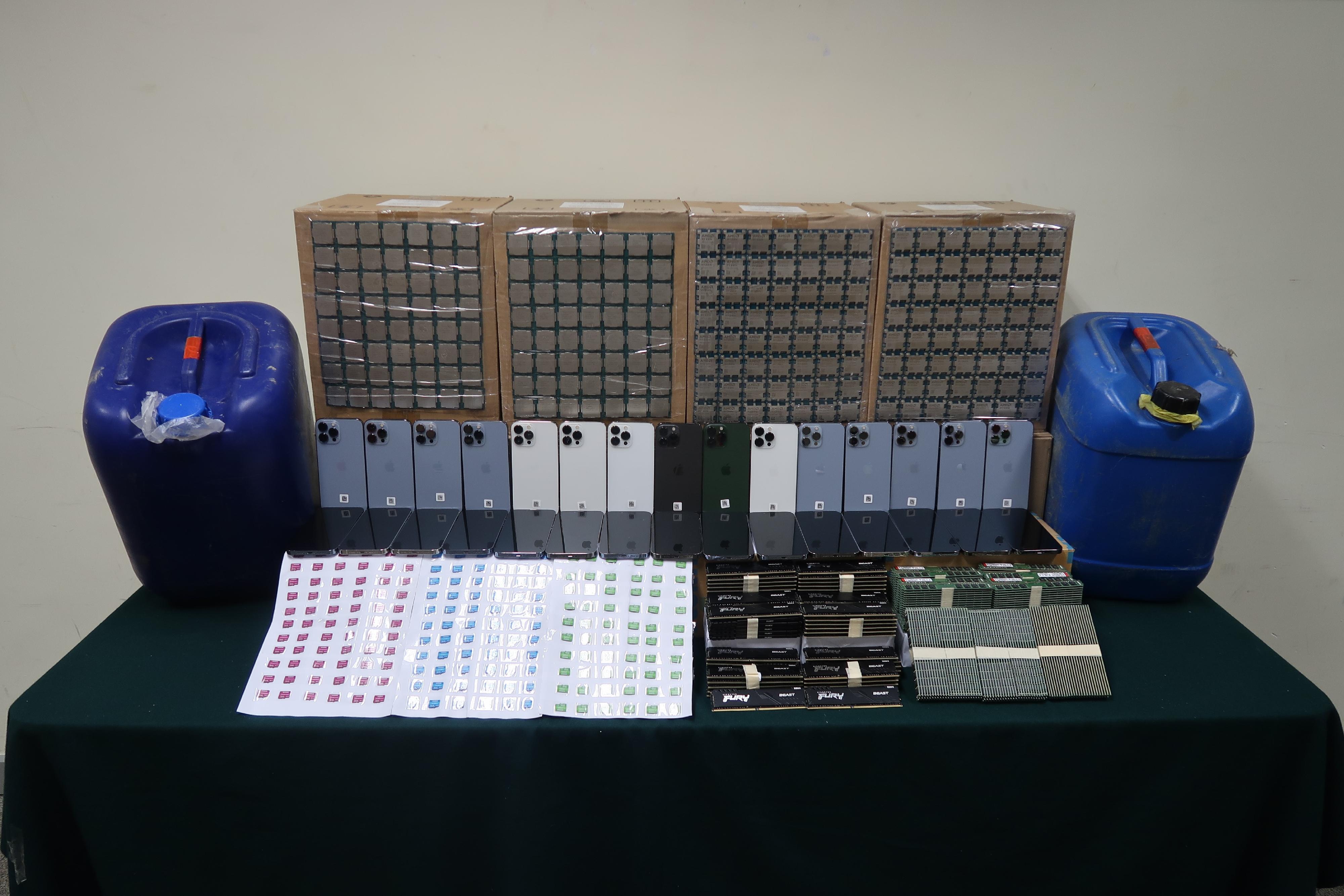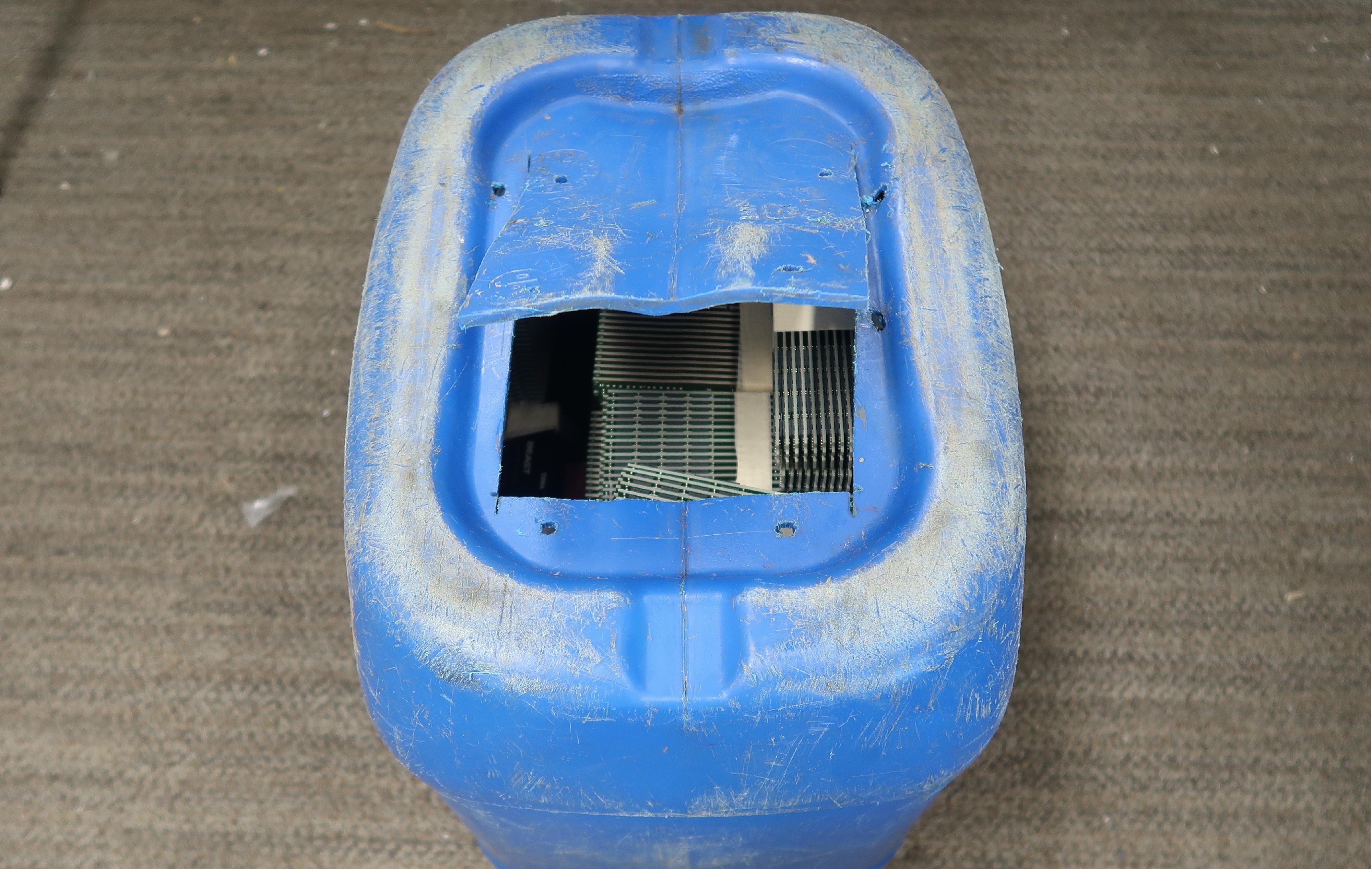Hong Kong Customs detects smuggling case valued at about $6.9 million involving speedboat (with photos)
Hong Kong Customs on December 4 detected a suspected smuggling case involving a speedboat in the vicinity of Lau Fau Shan, Yuen Long. A batch of suspected smuggled goods, with an estimated market value of about $6.9 million, was seized.
During the small hours on that day, Customs conducted an anti-smuggling operation in Lau Fau Shan and spotted a speedboat heading towards the waterfront. Later, several suspicious persons gathered at the waterfront were seen transferring a batch of goods from a metal hut onto a nearby sampan and were about to sail towards the said speedboat. They were suspected of engaging in smuggling activities.
Customs officers immediately took action, and the above-mentioned persons swiftly jumped onto the sampan and speedboat, and fled to Mainland waters.
Afterwards, Customs officers discovered inside the metal hut three plastic jerry cans with altered structures, filled with suspected smuggled electronic components and electronic devices.
During the operation, around 8 100 pieces of new electronic components and around 90 used mobile phones, with a total estimated market value of about $6.9 million, were seized.
An investigation is ongoing.
Customs will continue to take stringent enforcement actions against cross-boundary smuggling activities through risk assessment and intelligence analysis.
Smuggling is a serious offence. Under the Import and Export Ordinance, any person found guilty of importing or exporting unmanifested cargo is liable to a maximum fine of $2 million and imprisonment for seven years upon conviction.
Members of the public may report any suspected smuggling activities to Customs' 24-hour hotline 182 8080 or its dedicated crime-reporting email account (crimereport@customs.gov.hk) or online form (eform.cefs.gov.hk/form/ced002).

